Balance Not Symmetry is a moving film that studies the notion of grief, through the eyes of a young woman, played by Laura Harrier, in Glasgow. It’s a tender, emotionally driven drama that marks something of a departure for Welsh auteur Jamie Adams, and to mark the release we had the pleasure of speaking to the man himself, as he explains to us how his own grief following the deaths of his parents, ignited the desire to tell this story, and how it proved to be a cathartic experience for him. He also tells us how he came to collaborate with Biffy Clyro on the project, why he feels that female actors are more courageous than their male counterparts, and whether he’s got any plans to take a break (one we can’t help but feel he bloody deserves).
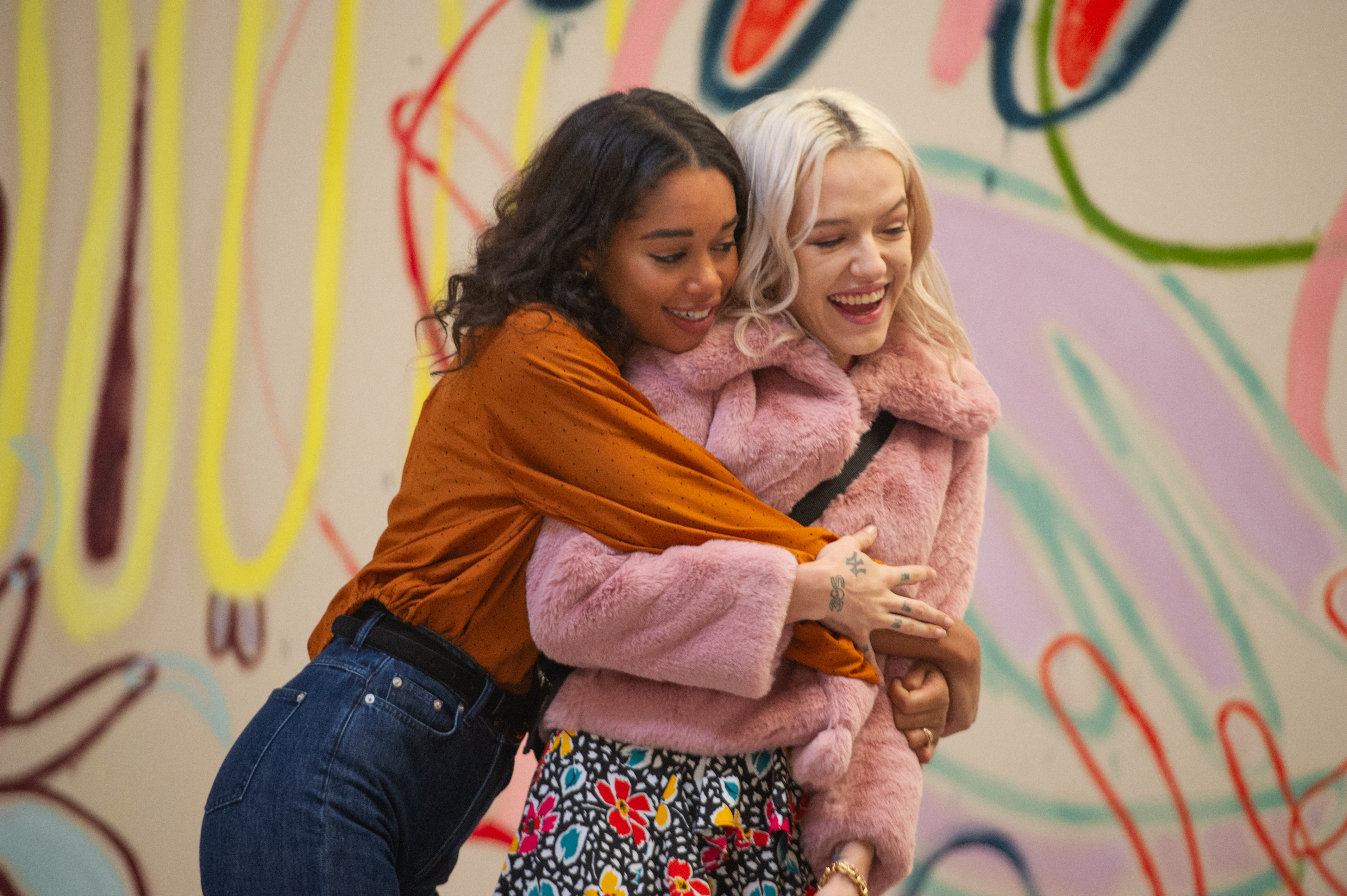
How did you come to know Biffy Clyro’s Simon Neil? What was the genesis of this project?
When my mum passed away when I was 19, I was an University studying media arts, which was basically film and TV production, and I was figuring out what my future was going to be, in a world where my one security, my parents, weren’t there. To lose one at such a young and impressionable age, I didn’t know what to trust anymore so it was a difficult time. I always thought if I ever got the opportunity I would try and explore what I was going through, which was obviously grief. My father passed away three weeks before we shot the film as well, so there was me trying to deal with the old grief, and then came the new grief. It was hard. So that’s where it came from. I was looking for the right collaborator really, because back in 1999 it would have to be somebody like Manic Street Preachers or Stereophonics, somebody like that, great storytellers with their music. But who was I?
In 2003 I went to a Biffy Clyro gig, though I had seen them before that, my friends were in a band who supported them in the early days, so I knew all of them, but they were a bit too heavy for me and how I was feeling at the time. Though I got a reason sense that Simon was a great songwriter. So they’ve always been on my radar, but in 2003 there was this song they were singing called Machines and the end of it is like a chant. He says, ‘take the pieces and build them skywards’ is what gets repeated, and when I heard this crowd singing it, I realised he was saying to me what I’d been through, and I realised he’d been through it. I knew immediately what it was about, and I found out he’d written a song about his mum passing away called Folding Stars. I knew then it was definitely a band I’d like to work with on this project, but I wasn’t ready to make it because I was in my mid-20s and I was focusing on making comedies.
Then when my dad fell ill in 2016, it started to resurface in my mind, and it was a project I needed to make, something I needed to express. So I got in contact with them in 2017, and they were even bigger and I wasn’t sure if they’d have the time. To be honest, they didn’t have the time, Simon just loved the whole idea of doing an album and a movie with the album coming out first, and the whole album is part of the narrative of the movie, and vice versa. It’s not an everyday score or soundtrack in that sense. Then we started talking and realised we had so much in common, it was fascinating and those conversations were wonderful.
Is this your most personal film to date?
Yeah, it is. I work with improv so it’s not all coming from me, I’m guiding the improv and the scenes are very much from me, but the guys are in character in those moments and they’re allowed to go where they feel they need to go. That’s a veil for me. Another veil is comedy, but in this film there’s not much of that, it’s quite raw and I find it hard to watch it. It’s very much about the music for me, Simon’s lyrics are incredible, he was sending me the songs as they were coming in and it was like he was reading my mind. If you’re watching the film and you’re hearing his voice as a narrator of sorts, that’s when it works best. But it’s my most personal film to date, for sure. I don’t think I’ll be doing many dramas again after it, because it was tough.
I’ve noticed an upturn in authentic female friendships being depicted on screen. This film is an example of that – did you just let Laura and Bria implement their own experiences and their own emotions into the characters to help that be the case? Because there will be nuanced only they understand, that we, as men, wouldn’t be able to grasp.
Yeah absolutely, and that’s the arrogance of the writer. Film is theatre to me, and though I love films, I love Jurassic Park and stuff like that, but you have to find your own way of working and for me writing a script and having people say those words, it doesn’t have a connection. It comes across as not being from a real place, it can feel a bit disingenuous. I always wanted to find a way of having characters that really exist, and that’s what happens in the casting process. I make sure that the people that I case are able to be themselves in character, those who aren’t afraid to show who they are. Like when they do interviews with yourself – I use a lot of your videos in my casting, because they are generally showing a version of themselves, they’re one step away from who they are, they’re performing in a way, but they’re answering questions directed at them. That’s what my films have, there’s a lot of genuine emotion. Between those two in particular, they’d only met each other a couple of times beforehand, but you could see they were really clicking. That’s another beautiful thing to happen out of this film, that they’ve become the closest pals. You could see that happening on the set. It’s great that my films have these female friendships, but I’m not doing all these things on purpose, I’m not that kind of person, everything comes very organically and naturally. I think female actors are rather more courageous than male actors and are much more willing to be authentic in their work. They’re able to let their guard down and I think that’s why they’re the best improvisers.
There is something about all relationships in your movies, even the most unlikeliest of couples make a good fit. Is that instinctive to you when casting, or do you have to audition people together to get a sense of their chemistry? Or can you just tell?
There’s a lot in the casting, hours and hours and research. It does get to a point when I’ll have a Skype conversation because I can’t afford to go where they are, but I get a sense for who they are as a person and I’ll bring them together, whether it be sisters or long-term friends, and we’ll have Skype rehearsals to see if its working. But then in Black Mountain Poets, I knew that Alice Lowe and Dolly Wells had worked together before and they knew each other quite well, so they already had that chemistry. Suki Waterhouse and Poppy Delevingne in Bittersweet Symphony, they’d known each other since they were kids so that was a genuine relationship that existed between them. It’s a very organic and instinctual way of working and nothing is overthought, I just have a sense of something that is going to work, and I trust in that, rather than try and overthink it. Camera tests and stuff, that just takes the magic out of it for me. I’d rather keep the overthinking, formulaic, structured way of doing things to one side, and just get everyone in the room and let them be. Which is what we do, and why when you watch the films they feel very different to other films, because they’re very much a creation of themselves, not something that has been constructed.
Your films are hard to define, but I guess if you had to label them it would be ‘mumblecore’. But that’s a very American thing, and your films feel so distinctively British. You manage to maintain a sort of small-town feeling and yet will often higher American actors and use what is traditionally an America style. How is it combining those quite conflicting elements?
It comes from being a working class boy from the 80s. It’s a dream scenario. I saw these American actors and that’s what I know to be movies. To have Jennifer Grey come to my small town of Porthcawl, and Cobie Smulders, it doesn’t make any sense to me, how does that happen? It’s mind-blowing, and absolutely what I was hoping for. I’d love to have more times on rehearsals and shooting wise, but in terms of what we’ve done and achieved, and having Americans involved in movies, it just makes sense, it feels like that is how it should be. Also their improvising is on another level, they’re fearless. That confidence raises everybody else’s game. Cobie blew us away, it was unbelievable. She was just in there, it was incredible. British actors have this belief as well of course, but we’re more self-deprecating, generally speaking. I love the idea that I’ve been able to bring a bit of the 80s movie dream thing I had as a kid, and bring it into my world. I’m still living in my small town of Porthcawl, I’m not a city boy, I live in a little seaside resort.
It really feels like you might have caught Laura just before she blows up. She’s got something about her, and she’s the co-lead with Tom Hanks soon in BIOS. She’s got a huge career on the horizon, you must’ve been so thrilled to have got her.
Laura is sensational. She’s very honest and sincere, and that’s all you can hope for as a director, is to have that level of wanting to express themselves in that way, and she’s just a beautiful person. She’s from Chicago, she grew up watching John Hughes movies and she’s living the dream and it’s infectious hanging out with Laura and getting to work with her. She’s living the dream, and to have that energy around on set, you can’t buy that, it just makes everything much easier. In terms of her works, it’s incredible. She was always asking questions, she’d ask about my mum and how that was, and I thought it was just general conversation but then in a scene, she’d show me what we were talking about. It was a great collaboration, she’s a brilliant actor.

But no space for Richard Elis in this one, sadly. I was hoping he’d sneak in somewhere.
He was going to play Bria’s role [Laughs[. No, but listen, I did miss him, but he just makes me laugh too much.
This felt like a departure for you, but you’ve said you’re not 100% sure you’ll do another drama anytime soon – but are you pleased you’ve done it, that you can now tick this off?
I don’t know why I made it [laughs]. I love comedy and I love my comedies, and I had such a great stride going on, but I think I just wanted to test myself, and flex a different muscle. It felt like my first film again, I was a bit out of sorts, my fall back is funny. So was weird to not have that. But it’s music-led and I definitely fell back on that, but it’s not an out and out drama, it’s very much an entity in itself, when I watch it I’m not sure what it is. I think it’s a music-led-improv-drama, but that doesn’t sound like something people want to watch.
Well you’ve created a genre…
Yeah, exactly! But I am happy I did this. I’m always trying to get over my mother’s death, and that’s something I’ll never be able to do, and I’m not quite sure what I’m expecting to happen. But I think it was searching for some kind of putting it to bed situation, and that’s why I’m glad the film exists. For my children really, so they get a sense of how deep-rooted all of that is for me. In that sense I’m glad. My comedies were starting to get slightly affected as well by chasing that kind of drama, so I’m happy that it’s done so now I can go back to focusing on my Will Ferrell type comedies.
Nothing can ever make sense of the death of a parent, but do you think this experience did help on that front? Was it cathartic?
Yeah, absolutely. I cherish storytelling, and I was sharing the stories with Simon, and he’s gone through his loss with his mother, and we had a lot of conversations, and I think I’ve avoided those conversations a lot in the last 20 years, so it was great on that level in terms of that cathartic nature of sharing stories, being in it together. At least I’ve tried to deal with it. But in terms of my dad passing away so soon before we shot it, it really helped with that. I was able to go to the funeral and get up and do a speech, which I’d never have been able to do before. It was a strength that came from having that focus, and it really helped me.
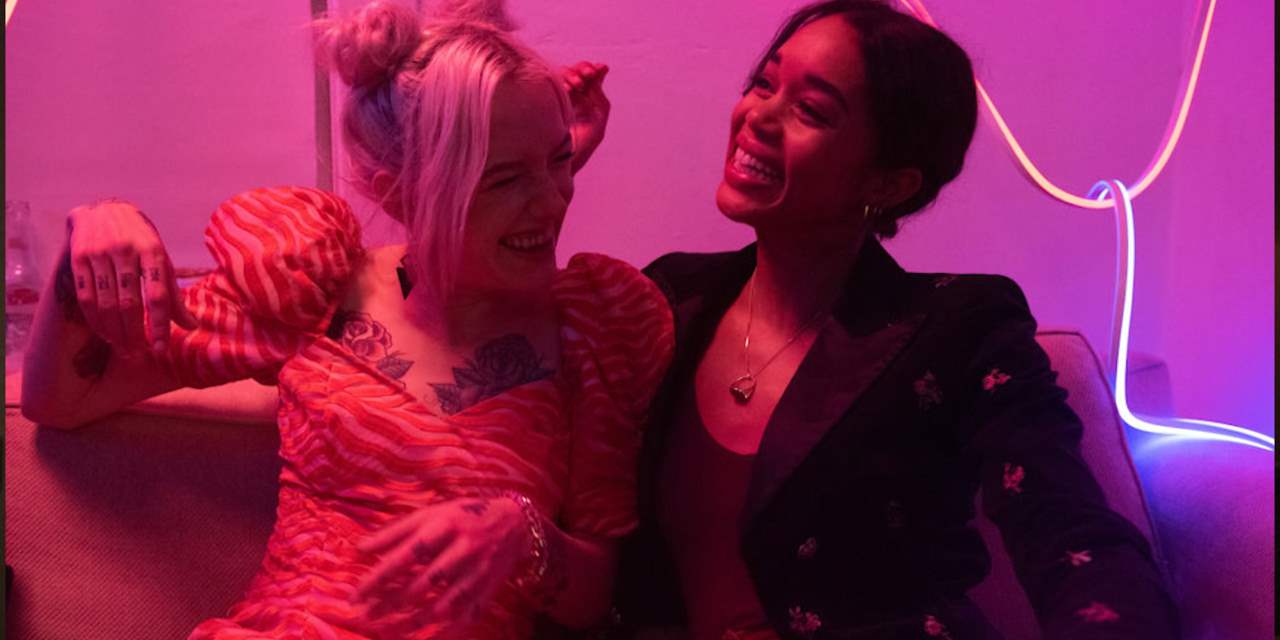
You do seem to put a real focus on female protagonists, where do you think that comes from?it’s a unique and refreshing thing to see from a male director.
Again, I don’t overthink it, I’m not specifically making films for them because they’re underrepresented, it’s not about that. My characters can be male or female, I’m not worried, I’m much more concerned about what we’re trying to achieve with the story. Every day is a discovery when you improvise, the themes are there and you have your arc, but each scene is a new discovery that takes you down a different path. I don’t have to be that specific in my mindset. I think I am mischievous as well though, so there is a part of me that thinks, well, if I have a choice then they’ll be female, because we literally don’t get to see much of it. The biggest influence for me was my mother and my nana, and they’re both gone so maybe it’s about wanting to spend time and go on journeys with incredibly brilliant and talented women, it makes a lot of sense.
A word I’ve often seen, and one I’ve used myself to describe you, is prolific. You’ll have had four releases just this year, which is incredible. Can you see yourself maintaining this pace? It sounds like you deserve a holiday.
[Laughs] I just see it as a craft, and I don’t understand why if you have an opportunity to keep crafting, why you wouldn’t do that. Friends of mine like Craig Roberts, he takes a year to have time to figure out what he’s going to do next, but I know what I want to do, and if I can then great. I’ve generated a way of working that means I can continue working. A lot of filmmaking it seems is waiting around, and I’m just not that person. I went down that road, I had a project with the BFI and it was brilliant until I cast Patricia Arquette and they didn’t understand why I was casting because it was too early to cast, and that really confused me. They just didn’t get it because it was moving too fast, and that also comes down to the fact I was a 19 year old who lost their mother, since then life doesn’t feel like a marathon, life feels pretty much about today. So if somebody comes up to me today and says, ‘let’s make a film next week’, I’ll make a film.


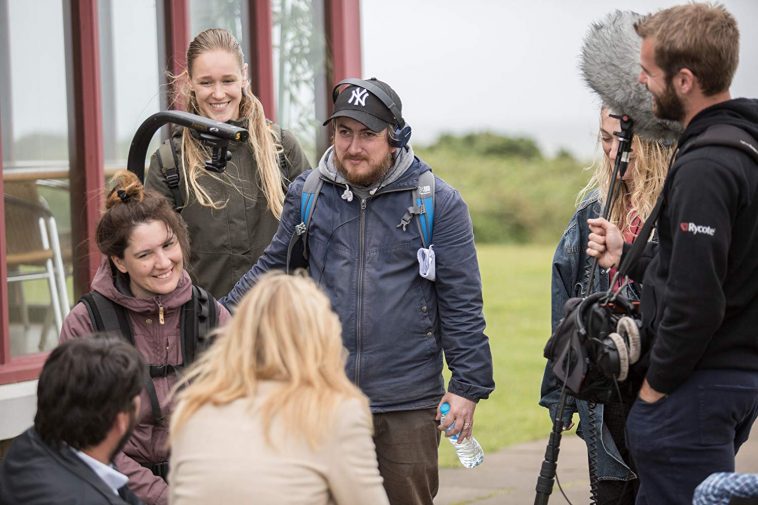

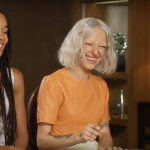
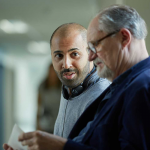



Leave a Comment